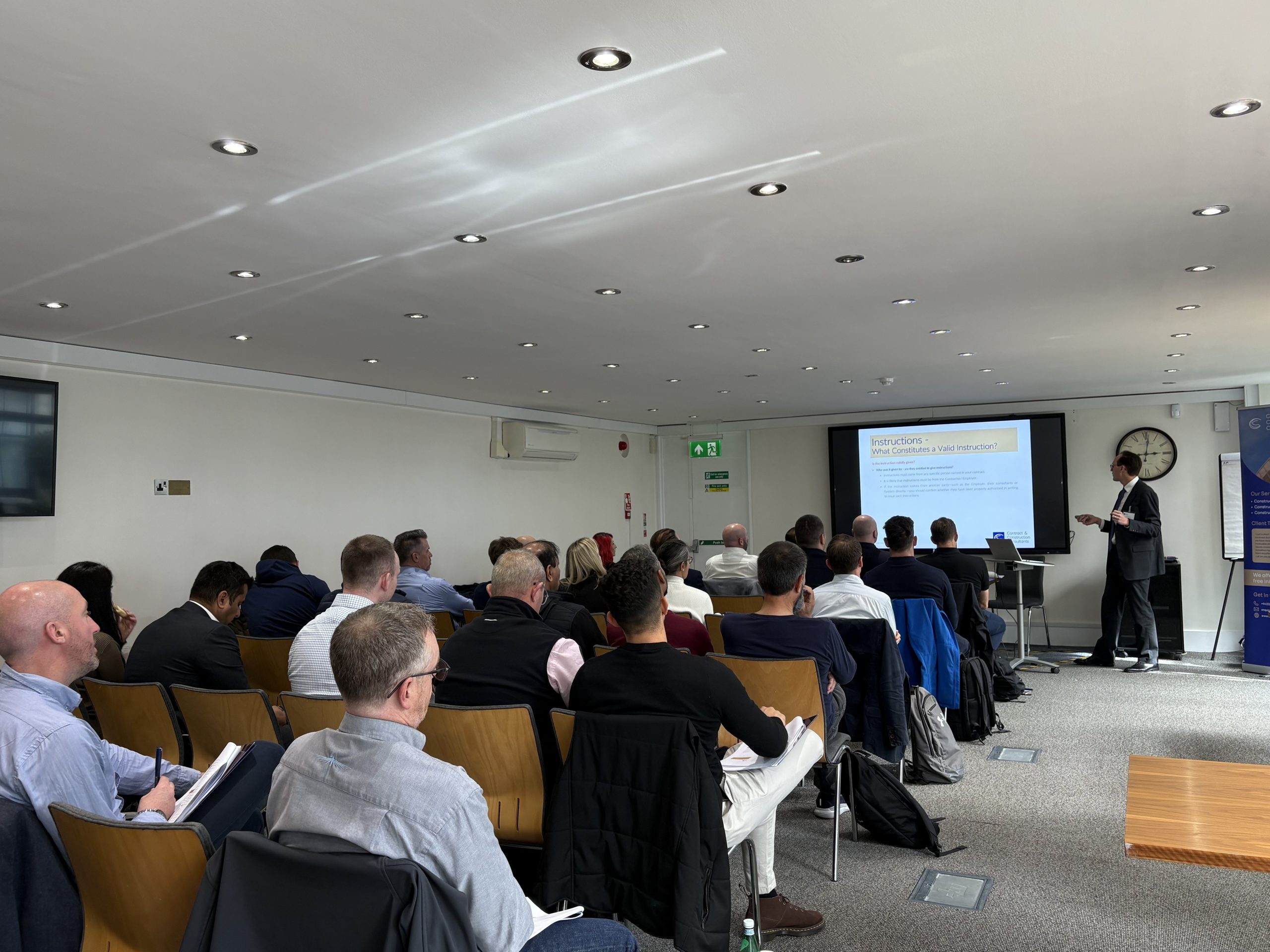Notice provisions are a standard part of most construction contracts. Their purpose is straightforward, to ensure transparency between parties, provide a mechanism for early warning, and allow developing issues to be managed proactively. Despite this, such provisions are frequently overlooked or disregarded in day-to-day site operations. The all too familiar phrase “Don’t worry, we can sort it out later” often leads to a hard conversations down the line. When “later” comes, the party who failed to issue a notice can find itself in a much weaker position. A party who fails to meet their contractual obligations simply put is in breach of contract. So, if you are going to do anything, make sure that party is not you, because being in breach of contract is a much more difficult position to be in.
The contractual reality
Construction contracts, whether under JCT, NEC, FIDIC, or bespoke terms, typically impose express notice obligations, many of which are conditions precedent. These might apply to extension of time claims, claims for loss and expense, instructions or variations, delays caused by others, or unforeseen events . If a party fails to issue a notice within the prescribed period, it may lose its right to claim entirely.
This is not an academic risk. For instance, clause 61.3 of the NEC4 Engineering and Construction Contract (ECC) requires the contractor to notify a compensation event within eight weeks of becoming aware of it, or else lose the right to recover time or money (note timescales may be amended in specific contracts). Similarly, under JCT contracts, a contractor must give prompt written notice of delay events and any subsequent loss and expense. Again, this obligation is often amended to include more stringent requirements. The courts have repeatedly upheld these clauses where they are clearly drafted as conditions precedent. If the contract says a notice must be given, and it is not, the entitlement is lost. These sorts of clauses can be applied very strictly in adjudication and other forms of dispute resolution.
The cultural disconnect
Notwithstanding the contractual position, many project teams are reluctant to issue formal notices. Concerns about disrupting relationships, creating conflict, or attracting negative attention can lead to informal arrangements and delayed action. It is not uncommon for a the party giving notice to be told in a reassuring manner that notices can be “dealt with later” once things are running smoothly again. But these informal assurances often carry no legal weight and is only stirring trouble for later down the line.
Where a dispute arises, the contract becomes the focus, and the absence of a timely notice can become decisive. Whatever reassuring messages you may have been told at the time, cease to have any relevance Courts and adjudicators will not override clear notice provisions simply because there was a cooperative attitude at the time or because the other party “knew about the issue anyway.” Memories fade, site teams move on, and undocumented promises evaporate.
Commercial prudence, not confrontation
Giving notice is often misunderstood as confrontational. In reality, it is best viewed as a commercial safeguard. A well drafted notice does not need to be aggressive in tone; it simply records the relevant facts and preserves the issuing party’s position. Notices, when served promptly, often prevent disputes from escalating by forcing the parties to engage early, review contemporaneous records, and seek resolution while events are still recent and evidenced.
Conversely, failing to notify tends to result in issues being raised late, often after project completion, when key personnel are no longer available and records are incomplete. This can make resolution harder and costlier, and this approach increases the likelihood of formal adjudication or litigation.
Practical steps for subcontractors and contractors
Firms should make contractual notice compliance part of their routine commercial practices. This begins with understanding the specific notice requirements in each contract, including the triggers, content requirements, and timeframes. Notice processes should be built into the project’s commercial management process and must not be ignored.
It is essential to ensure project managers, engineers, and site supervisors understand that giving notice is not optional. It should be seen as good practice, not an act of hostility. Proper record keeping, photos, site diaries, delivery records, and email trails, should support each notice to strengthen the claim.
Final thoughts
The takeaway is simple, if the contract requires a notice, give the notice. Failing to do so can be fatal to a claim, no matter how valid the underlying issue may be. Timely notices not only protect your legal entitlement, but they also encourage early dialogue, reduce the likelihood of dispute, and demonstrate a commercially disciplined approach to risk management. Silence may seem cooperative in the short term, but it rarely pays off in the long run.
How CCC can help
We help contractors and subcontractors put notice procedures into action. From reviewing your contract terms to drafting compliant notices and training your team, we work with you to ensure your rights are preserved, not lost. Whether it is an extension of time, loss and expense, or a compensation event, we help you stay one step ahead, so you are not relying on good faith when the contract demands formality.



